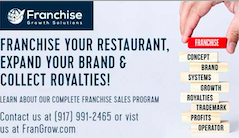The process of site selection bears striking similarities to the dating experience. By understanding the different stages, emphasizing clear communication, seeking legal counsel, and documenting agreements, you can navigate the site selection process more effectively and increase the chances of a successful, long-term location that maximizes your unit volume.
Navigating Site Selection: A Dating Analogy
By David Simmonds – Founder & President of RESOLUT RE & Contributing Writer for Franchise Money Maker
Finding the perfect location for your business is a lot like dating. You start by exploring your options, then progress through various stages of interaction before committing to a long-term relationship. In this article, we’ll highlight key phases of this process and emphasize the importance of clear communication and legal protection.
Exploring Options:
Just as in dating, the site selection process begins with exploration. You survey the market, research potential locations, and get a feel for what’s out there. This phase is crucial for gathering information and identifying viable prospects.
Casual Meetups (Showings):
Once you’ve narrowed down your options, it’s time for the casual meetups—the showings. Similar to going on dates, these meetings give you the opportunity to physically experience the space, envision your business there and assess its suitability.
Sizing-Up Phase (Letter of Intent):
After finding a promising location, you enter the sizing-up phase, which is comparable to the letter of intent (LOI) stage. Here, both parties—the owner and the tenant/buyer—begin to outline the terms and conditions of their potential relationship. Deal breakers and negotiable aspects are identified, setting the foundation for future discussions.
The Importance of a Non-Legally Binding LOI:
It’s crucial to remember that the LOI process should be non-legally binding. Much like a pre-dating phase, it serves as a basic agreement on key economic terms. The LOI should explicitly state its non-binding nature, allowing both parties to proceed to the lease phase without undue legal obligations.
Focus on the Big Picture during the LOI Process:
During the LOI process, it’s important to maintain a focus on the big picture and not get bogged down in the minutiae. The LOI serves as an outline of the agreed-upon economics, while specific legal and contractual details can be addressed by your attorney. This approach ensures smoother negotiations and allows for a more efficient transition into the lease phase.
Documenting Agreements:
Always ensure that both parties sign the LOI. While non-binding, the signatures serve as a record of the agreed-upon terms before entering the lease phase. Memories can be unreliable, and having a documented understanding helps prevent misunderstandings and misinterpretations.
The Legally Binding Lease (Marriage):
The lease agreement is the legally binding contract that solidifies the relationship, comparable to a marriage. While the main terms from the LOI should be reflected in the lease, it’s essential to engage an attorney to safeguard your interests, similar to a prenuptial agreement. Legal counsel can ensure that your rights are protected and mitigate potential disputes in the future.
Navigating Challenges and Resolving Issues:
Just like any relationship, issues may arise during the course of the lease. If disputes occur and communication breaks down, both parties will refer to the lease to justify their positions. This underscores the significance of a well-drafted lease agreement and the need for effective resolution strategies.
Conclusion:
The process of site selection bears striking similarities to the dating experience. By understanding the different stages, emphasizing clear communication, seeking legal counsel, and documenting agreements, you can navigate the site selection process more effectively and increase the chances of a successful, long-term location that maximizes your unit volume. And working with a qualified real estate broker increases that likelihood even more. Remember, just like in dating, finding the right match is an exciting journey that requires careful consideration and proactive decision-making.
= = = = = = = = = = = = = = = = = = = = = = = = =
About The Author: DAVID SIMMONDS
David Simmonds founded RESOLUT RE in January of 2009 and has since built a massive, international, 3rd-party brokerage platform. RESOLUT RE has 6 offices across Texas (Dallas/Fort Worth, Houston, Austin/San Antonio, McAllen, Midland & El Paso), and serves the great states of Louisiana and New Mexico out of offices in Lafayette, Albuquerque and Santa Fe.
RESOLUT RE represents 68 tenants nationally/internationally. We have the ability to service our clients’ expansion needs anywhere in the United States and up to 130 countries around the globe.
RESOLUT RE markets over 800 projects and exclusively represents over 250 tenants regionally across Texas, New Mexico and Louisiana.
David is a member of the International Franchise Association (IFA) and the International Council of Shopping Centers (ICSC) and received a Bachelor of Arts degree in Economics from Columbia College/Columbia University in New York City.











